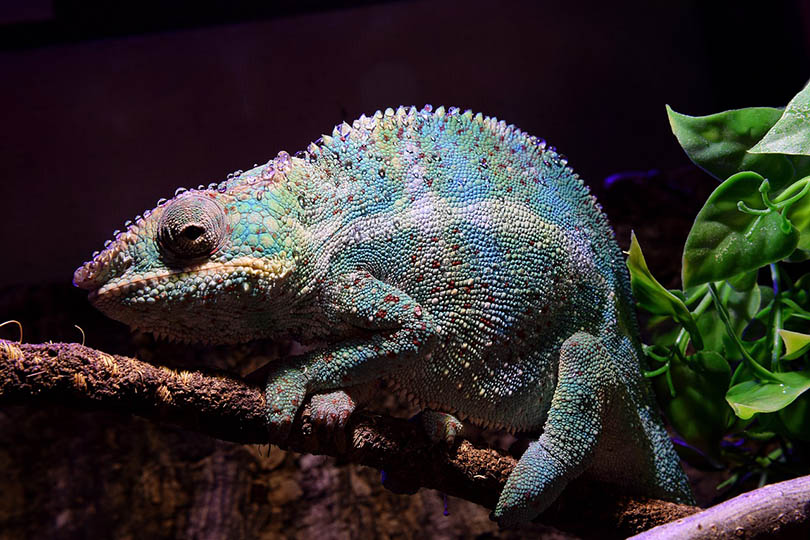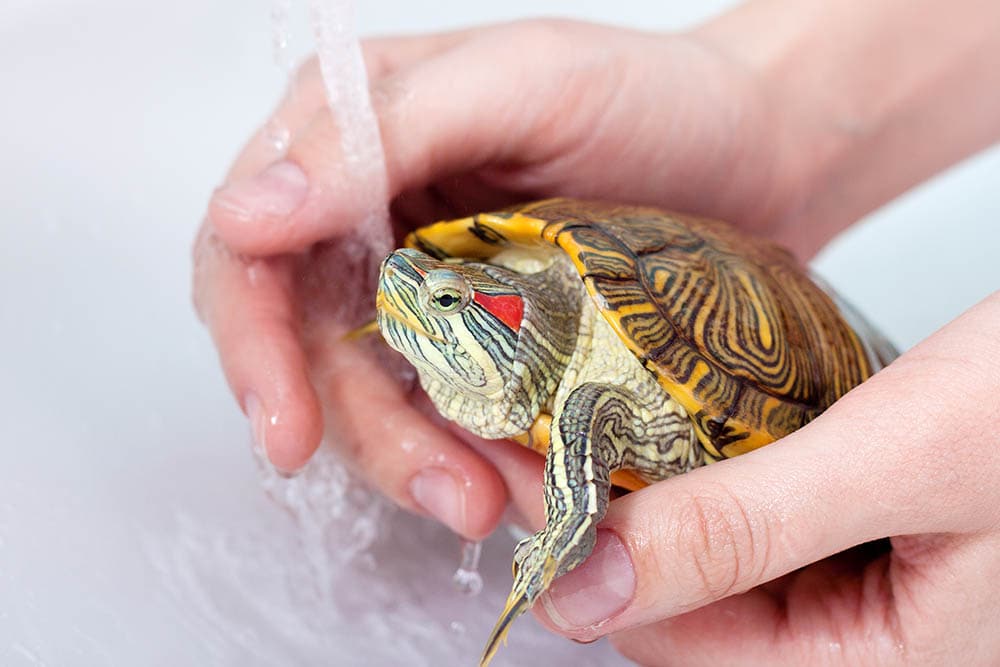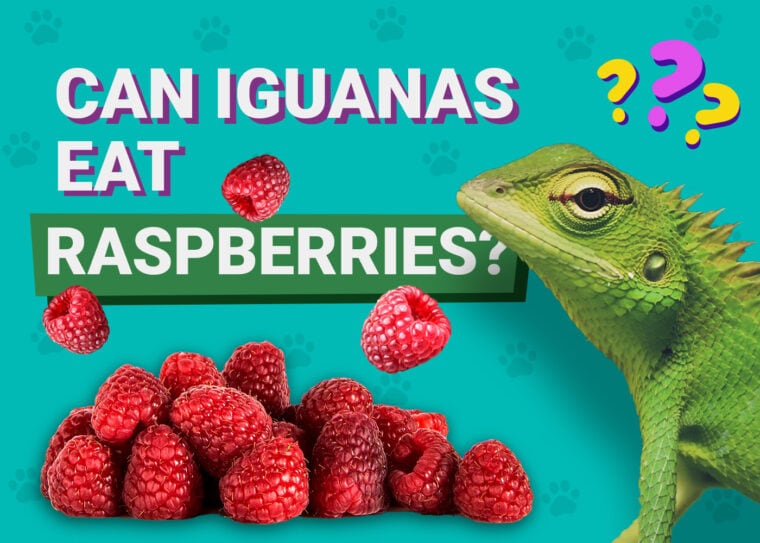
Iguanas are herbivorous reptiles. More specifically, they are folivores, a particular type of herbivore whose diet mainly consists of foliage (leaves). While leaves may not seem exceptionally nutritious, iguanas are hindgut fermenters, so they can get all the nutritional value of something that is usually difficult to digest!
While in their wild habitats, they mainly survive on leaves; this makes up only 80% of their diet. The other 20% is from fruit. There is a range of different fruits that can be fed safely to iguanas. The key is finding the fruits that are easily attainable for you as a reptile owner and naturally healthy for your pet. You’re here because you want to know if raspberries are one of those, right?
Iguanas can eat raspberries! However, raspberries are high in sugars and should be fed only occasionally as a treat. Raspberries can offer multiple health benefits as part of a balanced diet.
Are Raspberries Good for Iguanas?
Raspberries are a fruit that is often recommended to us by nutritionists as it is considered to give us some incredible health benefits. They are predominantly known as heart-healthy food and can help to reduce the risk of heart disease.
We humans are fundamentally different than an iguana, in more ways than one! So, are raspberries just as good for iguanas as they are for us? Let’s break raspberries down into all their components and see how they can serve an iguanas body to make sure we provide out scaled friends with the best diet possible.

Nutritional Breakdown
| Raspberry Nutrition Per Serve (19g – 10 raspberries) | |
| Water | 16.3g |
| Calories | 9.9kcal |
| Sugar | 0.8g |
| Calcium | 0.131mg |
| Magnesium | 4.18mg |
| Phosphorus | 5.51mg |
| Potassium | 28.7mg |
Source: US Department of Agriculture
Additional Vitamins & Minerals

Health Benefits
This breakdown shows us that the small and humble raspberry is made up of many components that the body needs to function and thrive. Research from the American Institute of Cancer Research even suggests that raspberries can assist in preventing cancer! They have properties that are “antiproliferative,” – which simply means they fight abnormal cells, such as cancer cells, from dividing and multiplying.
Raspberries are also great for heart health due to their flavonoids. They can assist in managing the cardiac health of your iguana.
Generally, you will find that many of the nutrient benefits of raspberries are similar to those that are ingredients in supplements you use.
Raspberries can be a great way to deliver some of these vital minerals, vitamins, and amino acids to your iguana. Additionally, the sweet flavor and juicy texture of raspberries may be loved by your reptile and prove to be a real treat!

Risks
We’ve mentioned that raspberries should be fed to your iguana as a treat, not an integral part of their diet. Naturally, an iguana diet will only be 20% fruit, so providing a small number of raspberries relates to this. Raspberries are high in sugar, so they can disrupt blood sugar levels if fed in high amounts. High blood sugar can lead to obesity and associated issues.
Feeding up on too much fruit such as raspberries will also mean that iguanas will eat less of the natural vegetation diet that will offer them the best nutritional value; this means they run the risk of malnutrition.
Additionally, raspberries are a fruit that is high in oxalates. Oxalates in high amounts can be risky. Oxalates bind with calcium in the gut, reduce the absorbency of calcium in your iguana, and increase the risk of kidney stones. This means raspberries can increase the risk of calcium deficiency in iguanas, and calcium is vital for reptile bone health.
Don’t be afraid though, these risks are only present if raspberries are fed in very high amounts, the occasional treat will offer more benefits than it does risks!
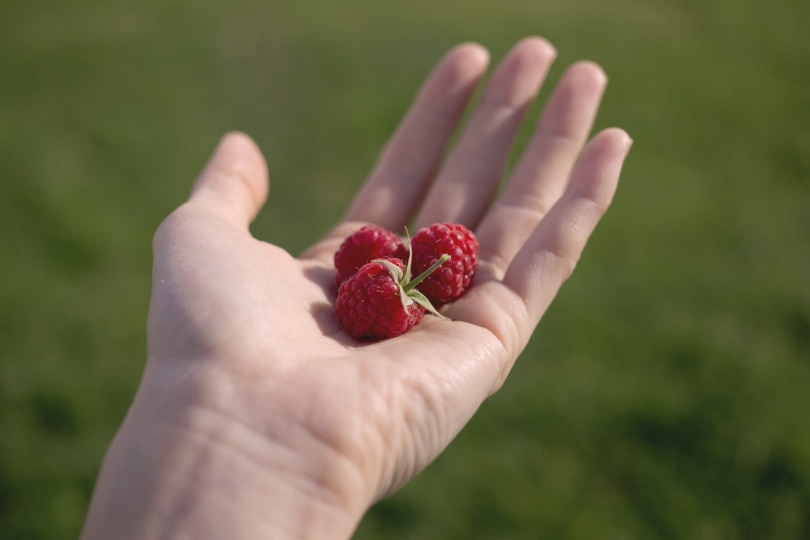
Raspberry Feeding Guide for Iguanas
Fresh
Fresh raspberries should be your first pick when shopping for raspberries for your iguana. They are often thought to be more healthy than preserved, but frozen or canned is just as nutritious!
Instead, fresh is the best choice as fresh raspberries will be at their most palatable. The taste, texture, and ripeness will be at their most ideal, meaning your iguana will enjoy it the most.
When preparing fresh fruit for your iguana, you should always wash them before feeding them out. Commercially grown raspberries may have pesticide residue remaining on the flesh. Even in low amounts, iguanas can be more vulnerable to the effects of these chemicals than we are. Reptiles, as ectotherms, have slower metabolisms meaning pesticides will linger in their systems a lot longer.
Chop all raspberries to a suitable size to avoid the risk of digestive impaction of choking occurring during feeding. A steady rule for reptile feeding is to never feed anything larger than the space between your reptile’s eyes.
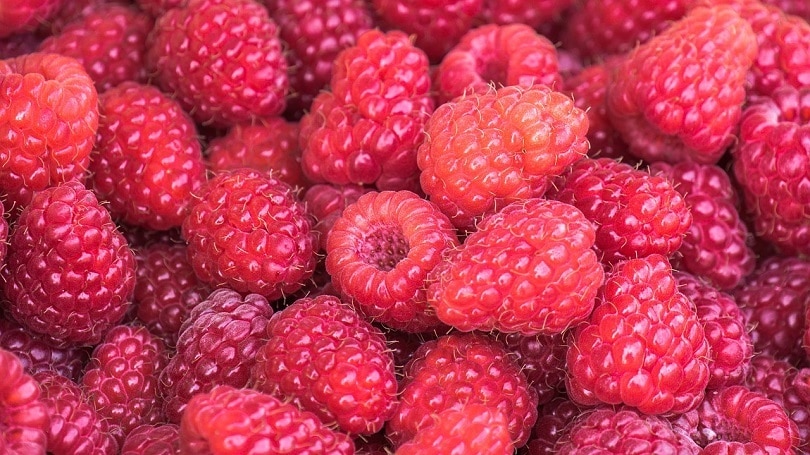
Frozen
Frozen raspberries will offer the same nutritional value to your iguana, but preparation will be different. You need to ensure that the raspberries are entirely frozen and at room temperature before feeding them.
Ectotherms like iguanas will rely on external conditions to thermoregulate their bodies. The addition of a very cold condition (eating a frozen raspberry!) will lower their body temperature quickly. It could easily affect their ability to digest their meal, increasing the risk of impaction.
Due to their sold metabolism and digestive process, food moves slowly through their digestive tract. Frozen raspberries can cause freeze burns in the internal tract of an iguana due to how slow they are processed.
Canned
Canned fruit is an economical way to get a range of different fruits that are out of season. Raspberries that have been canned still have the same nutritional value as of fresh and frozen, but you need to be very careful of additives.
Canned fruit is often preserved in syrups. These syrups are basically sugar and are not at all healthy for your iguana. Chose canned raspberries that have been preserved in their own juices. Also, make sure to since away any extra juices from the raspberries before feeding them out.
Dried
It’s best to avoid dried raspberries. The drying process strips the fruit of moisture and some of its valuable nutritional content, leaving something delicious but also very high in sugar!

Final Thoughts
Raspberries can make a tasty and valuable treat to add to your iguana’s main diet. They are not suitable for feeding in large amounts or feeding daily but are best fed as an occasional treat.
When you purchase and prepare raspberries for your iguana, there are a few things to consider to ensure the raspberries are both palatable and safe.
See Also:



